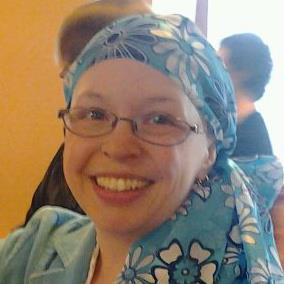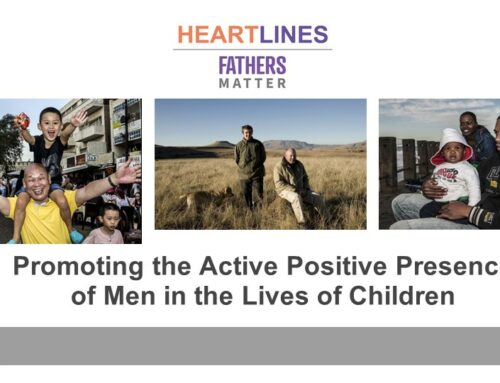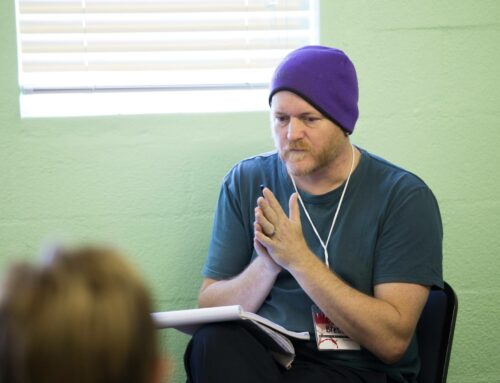Heather Martin is the wife of Robert Anthony Martin, who i met at a protest in Philly that was against an outdoor feeding ban in 2012, and she has agreed to let me use this blog post that she made which deals really well with this aspect…
The No-No List by Heather Martin from her blog ‘Not Quite Right: Faith – Life – Common Sense’ which can be found here.
‘For those of you who don’t know me or are new to my blog, I embarked on the Breast Cancer Journey eight months ago, when I discovered a lump in my left breast. I have had a successful lumpectomy, and have completed eighteen weeks of chemotherapy, and began my radiation treatments this week, which will take me into May.
Those of you who do know me know that I have made it a point to approach this journey with a healthy amount of humor. It’s amazing how much better things seem when you can find something to laugh about.
Sometimes, the things I laugh about are people’s reactions to my cancer, and the things that they say. Probably my favorite comment, which I heard from numerous people during my chemotherapy, was, “You have great color!” I always wondered what color I was supposed to be, if my actual color was unexpected. Purple, perhaps, or a very becoming chartreuse. Over time, I realized that the comment was intended to refer to the fact that I had rosy cheeks despite my treatments, a realization that was cemented after my third treatment when I began suffering from terrible anemia. From that point on, we referred to it as “misplacing my melanin.”
I did a quick internet search this morning to see if there were any articles on “What Not to Say to Cancer Patients,” and I found several. However, I found them all lacking. For one thing, not one of them mentioned misplaced melanin and therefore were, in my book, incomplete. So I decided to make up my own “No-No” list, based on some of the things I have come across this year.
1. When you find out your friend has cancer, please do not relate horror stories. At all. Ever.
There is nothing worse for a cancer patient than hearing, “Oh, gosh! My mother’s father-in-law’s seventh grade gym teacher had a cancer completely unlike yours, and he grew two extra heads before his flesh melted off of his bones!” Listen, honey, my grandfather died of pneumonia, brought on by his compromised immune system from chemotherapy, and I am very well aware of Good Morning America’s Robin Roberts who ended up with secondary cancer after chemotherapy for breast cancer. I know the risks. I know the worst-case scenarios. If your story doesn’t have a happy ending, don’t go there.
2. Don’t question or criticize the cancer patient’s choices of treatment…
…particularly after the procedure is a fait accompli. Once the word Cancer is pasted to your forehead, life becomes a multiple choice test, and each answer has its own level of unpleasantness. There is no decision that does not contain some amount of risk, and there is so much information thrown at the patient that every day feels like finals week in college. So when the little black dots have already been filled in with the #2 pencil and the paper has been turned in, it’s not going to be very helpful to hear, “You know, I read a story last week that says that this procedure you had done two weeks ago is going to make your feet fall off, and turn your earwax fuscia.”
3. Unless you’ve gone through, literally, the same process, give advice at your own risk.
Please do not suggest to a woman undergoing chemotherapy that she should not eat chocolate. Ditto bacon. Double-ditto coffee. You do not want to go there. Trust me, it’s not pretty.
Also, this is a Really Bad Time to bring up obscure little-researched alternative and/or homeopathic treatments with absolutely no solid facts behind them. Now, you may be a firm believer in the healing power of powdered elk-antler. In fact, most people would probably be quite curious should you ask if they’ve heard of the miraculous healing powers of powdered elk-antler. But presenting a cancer patient with, “Only powdered elk-antlers have the power to cure cancer! Any other treatment is going to make your feet fall off, and turn your earwax fuscia!” will probably not end well for you.
4. Don’t ask if you don’t really want to know.
“How are you doing – really?” and “How are your treatments going?” are dangerous questions. You’re really opening yourself up to learning more about the body than you’d prefer to know. You might get a very safe answer about goats throwing themselves off the hills of Gilead (See Song of Solomon…), or a slightly more disturbing relation of fingernails randomly falling off, or… well, trust me, it gets worse. There is no procedure in the breast cancer journey that is not either embarrassing, painful, or gruesome. Or some combination of two of those. Or all three. And after a while, the patient loses all sense of shock, and may be… blunt. So, unless you really want to know, stick with something safe and vague. And don’t be afraid to say, “TMI!”
5. For the love of all that’s chocolate, enough with the Facebook Cancer Support Pictures already!
Now, I think most cancer patients will understand and appreciate the sentiment, knowing they’re being thought of by their facebook friends as they’re going through their treatments. But, speaking for myself, when my friends post every prayer, dove, flower, rainbow, candle, butterfly, and fluffy kitten picture “honoring someone who has fought or is fighting cancer”, all it does it make facebook one more place where I can’t escape the reality of my disease.
If you really want to honor those fighting cancer, if you really want to bless me, go out and do something tangible. Call your local cancer center and offer to put together some goodie bags for people starting on their chemo journey (I got one, and it blessed me enormously!). Grow your hair long, and then cut it for Locks of Love. Knit or crochet soft caps with fun yarns for women who are left with zombie hair. Volunteer to drive cancer patients to their treatments. These things will have so much more impact on the lives of cancer patients than a picture on your facebook wall.
6. Don’t assign your emotions to the cancer patient.
No, really. Do you have any idea how ridiculous it is to have an argument with someone who won’t believe that I’m not depressed? That I’m fatigued because of the medication, not because of emotional distress? There have been times where I’ve gotten a little hot under the collar trying to get someone to believe that, actually, I’m quite happy, and have a supernatural amount of joy and peace, goshdarnit!!!!!
Ahem.
7. Don’t wait for the cancer patient to initiate contact.
I’ll admit that I’ve become a bit of a recluse since I was diagnosed with cancer. Part of this is because I simply don’t have the energy to think past what I need to do. Good grief, I’ll sit here for half an hour thinking about something I need to do before I actually get up and do it.
Part of it can also be completely explained with the words Chemo Brain. This is for real, folks. Chemo completely messes with your brain. My trains of thought have been known to get lost on a straight track. They have derailed before pulling out of the station. It’s really sad.
So if you haven’t heard from me, it may be because I sat by the phone for half an hour thinking about calling you, but by the time I get around to picking up the receiver, I’ve forgotten what I was going to do.
Don’t be afraid to take the initiative of calling, thinking they need their rest, or want to be left alone. The chances are pretty good that a call from a friend would be just what the doctor ordered!
************************
I hope you have been able to read this article with the humor and humility with which it was written. I recognize that I have also said and done all the wrong things when I have come across someone going through tragedy or illness. So this was not written to be either critical or sarcastic. These are, honestly, things which have made me smile because I have seen how much my friends and my family care for me. This is not a journey I would have chosen, but I am so much stronger for it.’







[…] meet Heather Martin [specifically speaking to friends of cancer sufferers] […]
I just love the way my wife phrases things… she keeps me smiling. 🙂
Oh, and BTW? That is one of the PRETTIEST women in that picture i’ve ever seen… sorry, tbV but Heather beats you hands down in my book